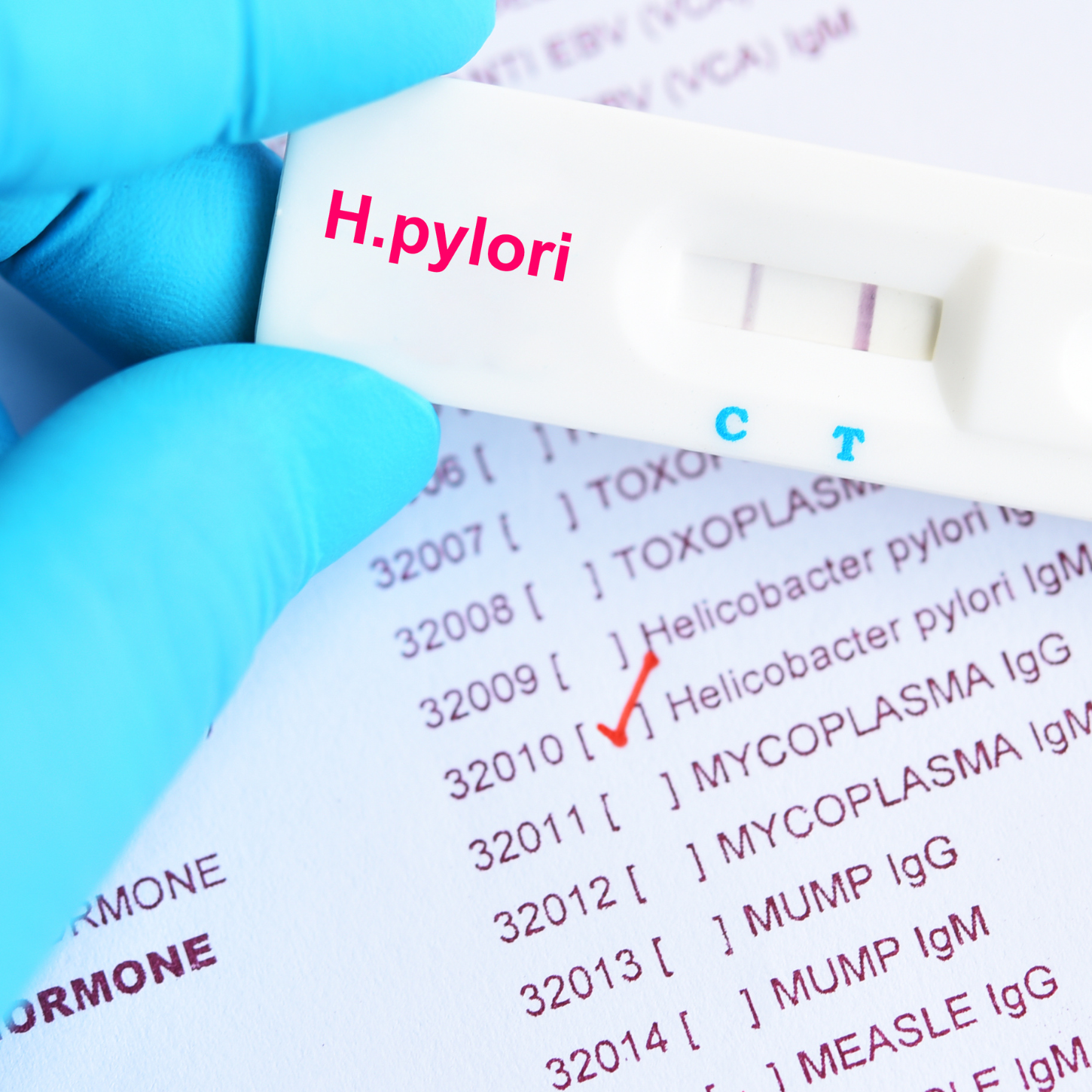Welcome back, health warriors, to the second part of our deep dive into the battle against H. pylori. In our previous instalment, we explored the basics of H. pylori infection, the importance of addressing it sooner rather than later, and the role diet plays in combating this common bacterium. Now, it's time to venture into the enchanting world of herbal remedies.
From the aromatic allure of garlic to the vibrant hues of turmeric, Mother Nature has provided us with a treasure trove of herbs and spices that not only tantalize our taste buds but also pack a punch in the fight against H. pylori. So, buckle up and get ready to discover how these natural wonders can help you reclaim your health and keep H. pylori at bay.
Table of Contents:
Herbal Remedies
As we journey through the realm of natural remedies for H. pylori, it's crucial to remember that these treatments should be approached with care and caution. First and foremost, always consult with a healthcare provider before starting any new treatment regimen. They can provide valuable guidance based on your specific health needs and circumstances.
Secondly, remember that even though they're 'natural', it doesn’t mean that they’re safe for everyone. Just like conventional treatments, they can come with their own set of risks and side effects. So, it's essential to stay informed and vigilant.
Also, keep in mind that when it comes to health, there's no one-size-fits-all solution. What works wonders for one person might not have the same effect on another. Our bodies are as unique as our fingerprints, and so is the way they respond to different treatments.
So let’s dive in!
1. Garlic
Let’s start with good ol’ garlic. Garlic is a winner on many fronts, including the eradication of H. pylori. As an effective free radical scavenger, aka antioxidant, garlic is effective against many diseases caused by radical oxygen species.
But here's the real kicker - garlic has been found to put the brakes on the growth of H. pylori. In fact, studies have shown that incorporating just two medium raw cloves of garlic (about 3g) into your meals twice a day for three days can help suppress H. pylori.
2. Turmeric
Turmeric is another front-runner. It's packed with curcumin, a compound that's been celebrated for its potent anti-inflammatory and antioxidant properties. But the magic of turmeric doesn't stop there.
Curcumin can inhibit the growth of H. pylori, even strains resistant to traditional antibiotics. That's right, this humble kitchen spice is stepping up as a potential ally in the fight against one of the world's most prevalent bacterial infections. Another study showed curcumin to be a useful supplement to improve chronic inflammation and prevention of carcinogenic changes in patients with chronic gastritis associated with H. pylori.
3. Capsaicin/Pepper
Pepper, a common ingredient in many dishes, is more than just a flavor enhancer. It's packed with antioxidants, thanks to its rich supply of carotenoids, provitamin A, and vitamins E and C. The spicy kick in hot peppers comes from capsaicin, an active component that's been linked to potential health benefits.
One study found that capsaicin could effectively inhibit the growth of H. pylori, depending on the duration and concentration of exposure. It's also been suggested that capsaicin could act as an anti-inflammatory agent by reducing the production of IL-8, a protein that can cause inflammation, in the stomach lining of individuals with H. pylori. In other words, it’ll keep your guts happier if you’re an H. pylori sufferer!
However, it's important to note that more research is needed to fully understand the effects of capsaicin and to determine the appropriate daily intake.
4. Green Tea
Let's talk about a powerful compound found in green tea called epigallocatechin-3-gallate, or EGCg for short. This superstar ingredient is known for its health benefits, including its anti-inflammatory and antioxidant properties. But here's the exciting part - researchers believe it might also help fight against particularly stubborn strains of H. pylori. In one study, the researchers found that adding EGCg to antibiotic treatments boosted their bacteria-fighting power. So, sipping on some green tea might not just be a soothing ritual, but also a step towards better gut health!
5. Honey
Honey’s another great one to add to the mix. It has been found to inhibit H. pylori infection in stomach cells.
But how does it work?
Well, research suggests that honey can block the activation of certain genes that H. pylori typically triggers. It also prevents the breakdown of a specific protein and reduces the levels of another protein associated with inflammation. The most significant effects were observed with a 20% concentration of Manuka honey, although other types of natural honey also showed similar effects.
So, while it's not a standalone cure, incorporating honey into your diet could potentially support your body in its battle against H. pylori. 
6. Bismuth
Now you may recognize this compound as a key ingredient in over-the-counter remedies for upset stomachs, but did you know it can also play a role in the fight against H. pylori? Bismuth, when used as part of a treatment regimen, can help kill H. pylori directly and provide a protective coating on the stomach lining, shielding it from the harmful effects of the bacteria.
In fact, studies have found that a treatment regimen including bismuth salts had a high success rate in eradicating H. pylori. So, while it might seem old-fashioned, bismuth could be a valuable player in your treatment plan against H. pylori.
7. Oil of Oregano
Oregano oil is not just a staple in Mediterranean cuisine, but also a potent natural medicine. When it comes to battling H. pylori, oregano oil could be a game-changer. It's packed with compounds like carvacrol and p-cymene, which have strong complementary antibacterial properties. In fact, studies have found that oregano oil can inhibit the growth of strains even resistant to antibiotics, making it a promising natural supplement in the treatment of this infection.
8. Mastic Gum
Let's turn our attention to an ancient remedy that's making a modern comeback - mastic gum. Derived from the resin of the mastic tree, this natural substance has been used for centuries in Greece and Turkey as a remedy for gastric symptoms.
Research has shown that it also has antimicrobial activity against H. pylori. That's right, this natural resin could potentially help in the fight against this stubborn bacterium. So, whether you chew it like gum or take it as a supplement, mastic gum could be a valuable addition to your H. pylori treatment plan.
9. Probiotics
Let's explore the fascinating world of probiotics and their potential role in combating H. pylori. Probiotics have been proven to be a more powerful contender against H. pylori than traditional triple antibiotic treatments, as they compete directly with H. pylori and help to restore balance in the gut microbial environment.
For instance, studies have found that a specific strain, Lactobacillus reuteri, could suppress H. pylori infection in humans. Other strains which have shown promise in studies include L. fermentum, L. casei, and L. brevis. More specifically, the L. reuteri DSM 17648 strain has the unique ability to cluster around H. pylori, reducing its load, without adversely affecting the beneficial bacteria in our gut.
Plus, when used alongside traditional treatments, probiotics can help reduce side effects and improve the overall effectiveness of the treatment. So, whether it's through a supplement or probiotic-rich foods like yogurt, kefir, or sauerkraut, incorporating these beneficial bacteria into your diet could provide a valuable boost in your fight against H. pylori.
Final Thoughts
And there you have it! We've journeyed through the world of H. pylori, explored the power of natural remedies, and armed ourselves with knowledge to take this pesky bacterium head-on. Remember, while H. pylori might be common, it's not invincible. With the right tools, strategies, and guidance, you can reclaim your health and keep H. pylori at bay.
Whether it's harnessing the power of garlic, sipping on green tea, or sprinkling some extra cinnamon on your morning oatmeal, remember that every small step can make a big difference. But, as we've emphasized throughout this blog, always consult with your healthcare provider before starting any new treatment regimen.
So, keep exploring, keep learning, and most importantly, keep prioritizing your health. After all, you're not just fighting against H. pylori, you're fighting for a healthier, happier you. And that's a battle worth winning!
Recipe Spotlight: Turmeric Congee















What Do You Think? Comment Below: